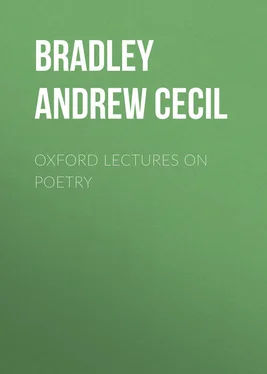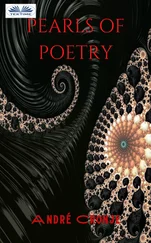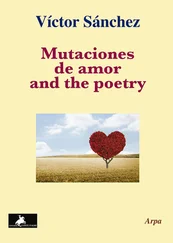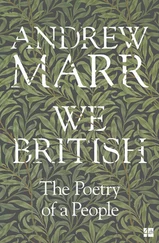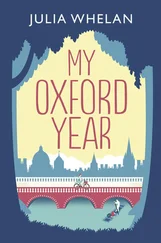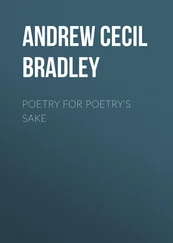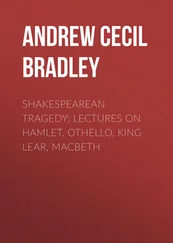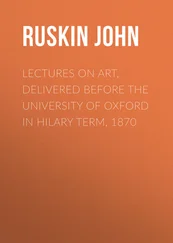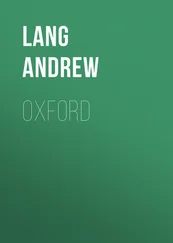Andrew Bradley - Oxford Lectures on Poetry
Здесь есть возможность читать онлайн «Andrew Bradley - Oxford Lectures on Poetry» — ознакомительный отрывок электронной книги совершенно бесплатно, а после прочтения отрывка купить полную версию. В некоторых случаях можно слушать аудио, скачать через торрент в формате fb2 и присутствует краткое содержание. ISBN: , Жанр: foreign_antique, foreign_prose, foreign_poetry, на английском языке. Описание произведения, (предисловие) а так же отзывы посетителей доступны на портале библиотеки ЛибКат.
- Название:Oxford Lectures on Poetry
- Автор:
- Жанр:
- Год:неизвестен
- ISBN:http://www.gutenberg.org/ebooks/36773
- Рейтинг книги:4 / 5. Голосов: 1
-
Избранное:Добавить в избранное
- Отзывы:
-
Ваша оценка:
- 80
- 1
- 2
- 3
- 4
- 5
Oxford Lectures on Poetry: краткое содержание, описание и аннотация
Предлагаем к чтению аннотацию, описание, краткое содержание или предисловие (зависит от того, что написал сам автор книги «Oxford Lectures on Poetry»). Если вы не нашли необходимую информацию о книге — напишите в комментариях, мы постараемся отыскать её.
Oxford Lectures on Poetry — читать онлайн ознакомительный отрывок
Ниже представлен текст книги, разбитый по страницам. Система сохранения места последней прочитанной страницы, позволяет с удобством читать онлайн бесплатно книгу «Oxford Lectures on Poetry», без необходимости каждый раз заново искать на чём Вы остановились. Поставьте закладку, и сможете в любой момент перейти на страницу, на которой закончили чтение.
Интервал:
Закладка:
We have then, first, an antithesis of subject and poem. This is clear and valid; and the question in which of them does the value lie is intelligible; and its answer is, In the poem. We have next a distinction of substance and form. If the substance means ideas, images, and the like taken alone, and the form means the measured language taken by itself, this is a possible distinction, but it is a distinction of things not in the poem, and the value lies in neither of them. If substance and form mean anything in the poem, then each is involved in the other, and the question in which of them the value lies has no sense. No doubt you may say, speaking loosely, that in this poet or poem the aspect of substance is the more noticeable, and in that the aspect of form; and you may pursue interesting discussions on this basis, though no principle or ultimate question of value is touched by them. And apart from that question, of course, I am not denying the usefulness and necessity of the distinction. We cannot dispense with it. To consider separately the action or the characters of a play, and separately its style or versification, is both legitimate and valuable, so long as we remember what we are doing. But the true critic in speaking of these apart does not really think of them apart; the whole, the poetic experience, of which they are but aspects, is always in his mind; and he is always aiming at a richer, truer, more intense repetition of that experience. On the other hand, when the question of principle, of poetic value, is raised, these aspects must fall apart into components, separately conceivable; and then there arise two heresies, equally false, that the value lies in one of two things, both of which are outside the poem, and therefore where its value cannot lie.
On the heresy of the separable substance a few additional words will suffice. This heresy is seldom formulated, but perhaps some unconscious holder of it may object: ‘Surely the action and the characters of Hamlet are in the play; and surely I can retain these, though I have forgotten all the words. I admit that I do not possess the whole poem, but I possess a part, and the most important part.’ And I would answer: ‘If we are not concerned with any question of principle, I accept all that you say except the last words, which do raise such a question. Speaking loosely, I agree that the action and characters, as you perhaps conceive them, together with a great deal more, are in the poem. Even then, however, you must not claim to possess all of this kind that is in the poem; for in forgetting the words you must have lost innumerable details of the action and the characters. And, when the question of value is raised, I must insist that the action and characters, as you conceive them, are not in Hamlet at all. If they are, point them out. You cannot do it. What you find at any moment of that succession of experiences called Hamlet is words. In these words, to speak loosely again, the action and characters (more of them than you can conceive apart) are focussed; but your experience is not a combination of them, as ideas, on the one side, with certain sounds on the other; it is an experience of something in which the two are indissolubly fused. If you deny this, to be sure I can make no answer, or can only answer that I have reason to believe that you cannot read poetically, or else are misinterpreting your experience. But if you do not deny this, then you will admit that the action and characters of the poem, as you separately imagine them, are no part of it, but a product of it in your reflective imagination, a faint analogue of one aspect of it taken in detachment from the whole. Well, I do not dispute, I would even insist, that, in the case of so long a poem as Hamlet , it may be necessary from time to time to interrupt the poetic experience, in order to enrich it by forming such a product and dwelling on it. Nor, in a wide sense of “poetic,” do I question the poetic value of this product, as you think of it apart from the poem. It resembles our recollections of the heroes of history or legend, who move about in our imaginations, “forms more real than living man,” and are worth much to us though we do not remember anything they said. Our ideas and images of the “substance” of a poem have this poetic value, and more, if they are at all adequate. But they cannot determine the poetic value of the poem, for (not to speak of the competing claims of the “form”) nothing that is outside the poem can do that, and they, as such, are outside it.’ 5 5 These remarks will hold good, mutatis mutandis , if by ‘substance’ is understood the ‘moral’ or the ‘idea’ of a poem, although perhaps in one instance out of five thousand this may be found in so many words in the poem.
Let us turn to the so-called form – style and versification. There is no such thing as mere form in poetry. All form is expression. Style may have indeed a certain aesthetic worth in partial abstraction from the particular matter it conveys, as in a well-built sentence you may take pleasure in the build almost apart from the meaning. Even so, style is expressive – presents to sense, for example, the order, ease, and rapidity with which ideas move in the writer’s mind – but it is not expressive of the meaning of that particular sentence. And it is possible, interrupting poetic experience, to decompose it and abstract for comparatively separate consideration this nearly formal element of style. But the aesthetic value of style so taken is not considerable; 6 6 On the other hand, the absence, or worse than absence, of style, in this sense, is a serious matter.
you could not read with pleasure for an hour a composition which had no other merit. And in poetic experience you never apprehend this value by itself; the style is here expressive also of a particular meaning, or rather is one aspect of that unity whose other aspect is meaning. So that what you apprehend may be called indifferently an expressed meaning or a significant form. Perhaps on this point I may in Oxford appeal to authority, that of Matthew Arnold and Walter Pater, the latter at any rate an authority whom the formalist will not despise. What is the gist of Pater’s teaching about style, if it is not that in the end the one virtue of style is truth or adequacy; that the word, phrase, sentence, should express perfectly the writer’s perception, feeling, image, or thought; so that, as we read a descriptive phrase of Keats’s, we exclaim, ‘That is the thing itself’; so that, to quote Arnold, the words are ‘symbols equivalent with the thing symbolized,’ or, in our technical language, a form identical with its content? Hence in true poetry it is, in strictness, impossible to express the meaning in any but its own words, or to change the words without changing the meaning. A translation of such poetry is not really the old meaning in a fresh dress; it is a new product, something like the poem, though, if one chooses to say so, more like it in the aspect of meaning than in the aspect of form.
No one who understands poetry, it seems to me, would dispute this, were it not that, falling away from his experience, or misled by theory, he takes the word ‘meaning’ in a sense almost ludicrously inapplicable to poetry. People say, for instance, ‘steed’ and ‘horse’ have the same meaning; and in bad poetry they have, but not in poetry that is poetry.
‘Bring forth the horse!’ The horse was brought:
In truth he was a noble steed!
says Byron in Mazeppa . If the two words mean the same here, transpose them:
‘Bring forth the steed!’ The steed was brought:
In truth he was a noble horse!
and ask again if they mean the same. Or let me take a line certainly very free from ‘poetic diction’:
Читать дальшеИнтервал:
Закладка:
Похожие книги на «Oxford Lectures on Poetry»
Представляем Вашему вниманию похожие книги на «Oxford Lectures on Poetry» списком для выбора. Мы отобрали схожую по названию и смыслу литературу в надежде предоставить читателям больше вариантов отыскать новые, интересные, ещё непрочитанные произведения.
Обсуждение, отзывы о книге «Oxford Lectures on Poetry» и просто собственные мнения читателей. Оставьте ваши комментарии, напишите, что Вы думаете о произведении, его смысле или главных героях. Укажите что конкретно понравилось, а что нет, и почему Вы так считаете.
